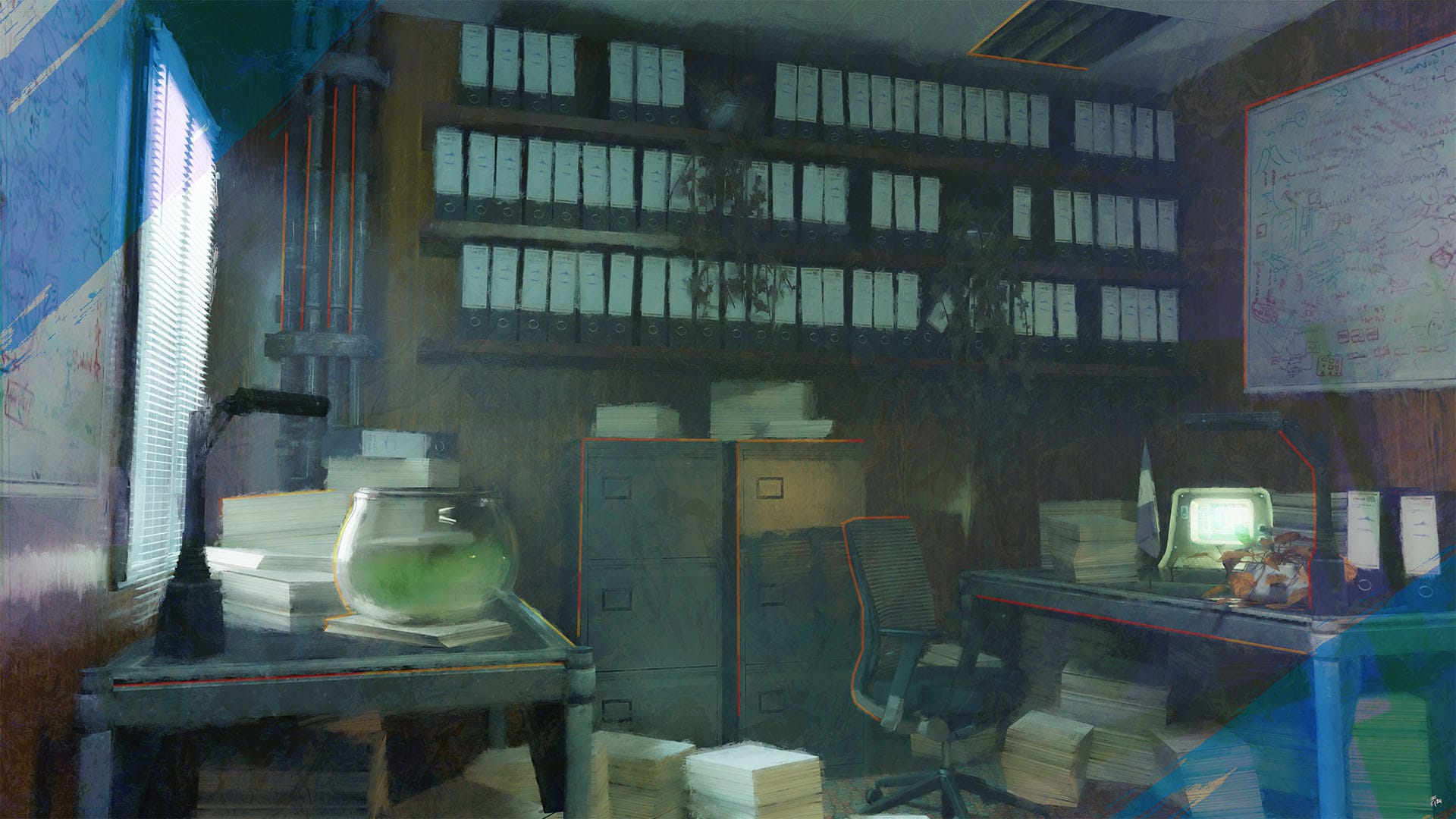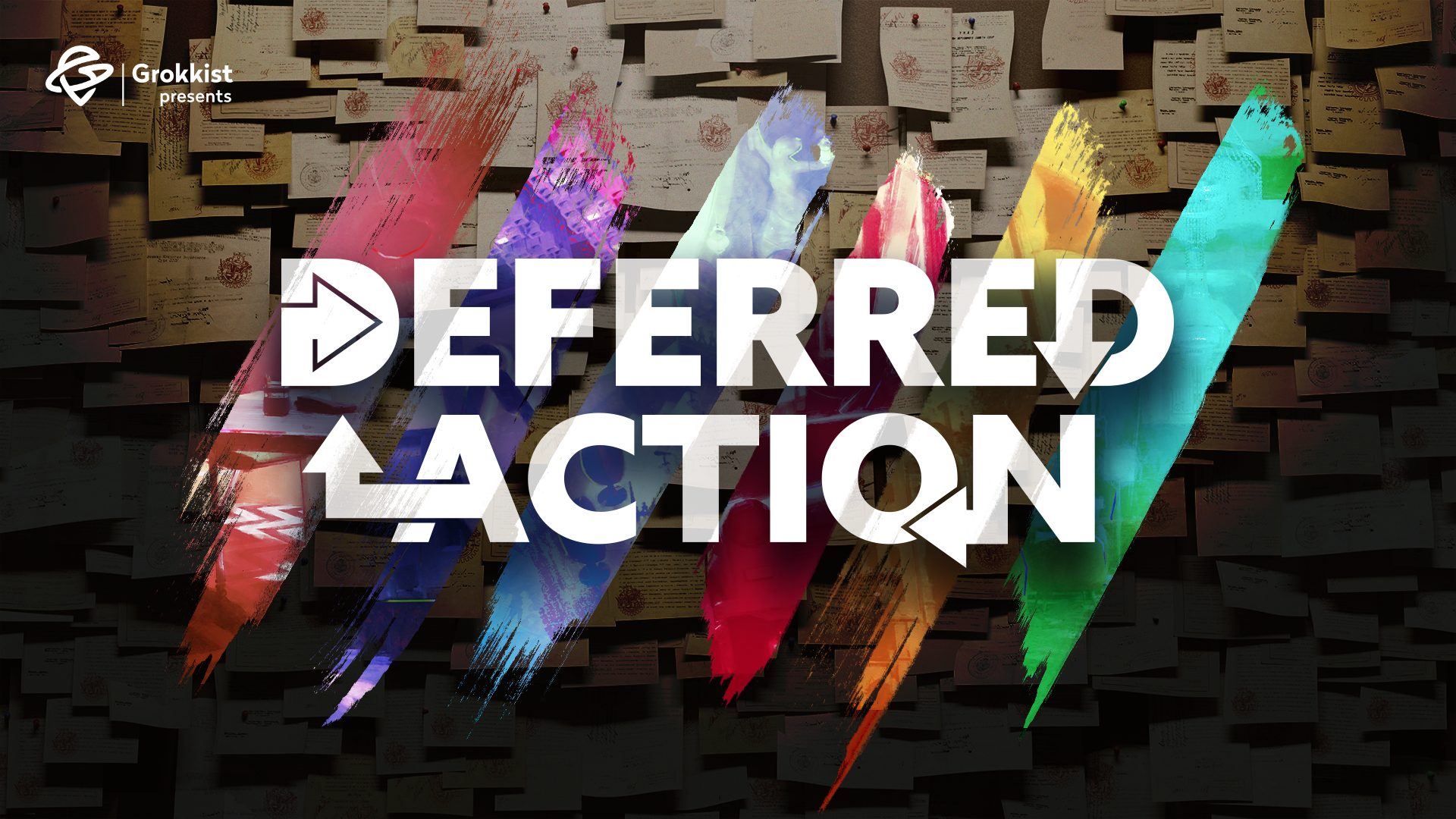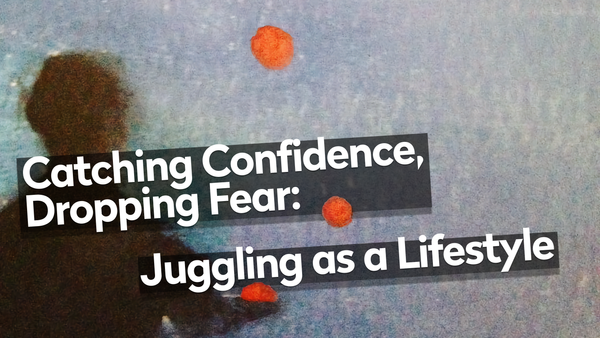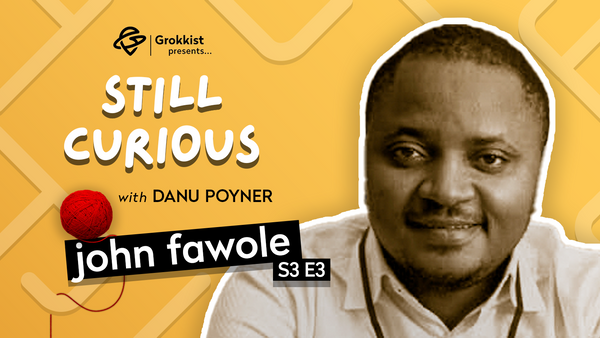Welcome to the Republic of Administravia
Step into the role of project leader for the Republic of Administravia's ambitious new public works initiative!
You've got unanimous support and unlimited resources, but can you navigate the twists and turns of Administravia's bureaucratic labyrinth to make it happen?
As bureaucratic hurdles mount, will you build a monument that embodies the national spirit—or will the process transform you instead?





"The most drainingly accurate depiction of bureaucracy I’ve encountered in gameplay since Papers Please"
A game about navigating bureaucracy
Deferred Action is an interactive adventure game inspired by a real-life puzzle many of us face as caring people stuck inside uncaring systems…
Can we do enough to keep the system happy without losing our jobs, our minds, or our souls?
I have many thoughts about this, but rather than just write or talk them out, I want to offer some of them to you in playable form.
Most ‘educational’ games aren’t fun.
You know the ones I'm talking about. Overly instructional without being at all enjoyable, they often combine the least appealing aspects of both education and game design.
Both games and education are at their best when they create a world for you to explore and experiment in a flow state, figuring out how things work and then achieving the satisfaction of putting your own intentions into action and experiencing the results.
So I set out to explore two questions:
- Can we make accurately simulate the real-life experience of bureaucratic fatigue and everyday moral injury while making it actually fun to play?
- How do we create a game that is fun-forward while also having serious lessons to offer?
In other words, what would it look like to model an undeniable experience of bureaucracy in the form of a persuasive game?
Let’s find out!

What's the game about?
Deferred Action invites you into the Republic of Administravia, a fictional foreign republic that nevertheless feels familiar.
Your objective, as a hapless civil servant, is to get your project past city councils, oversight committees and other administrative obstructions that threaten your success and your sanity.
The result is an experience that distils the invisible, inexorable apparatus at the heart of our society, in all its dismal majesty – bureaucracy.
Deferred Action captures a societal paradox — the very systems that make our lives possible also make them unbearable.
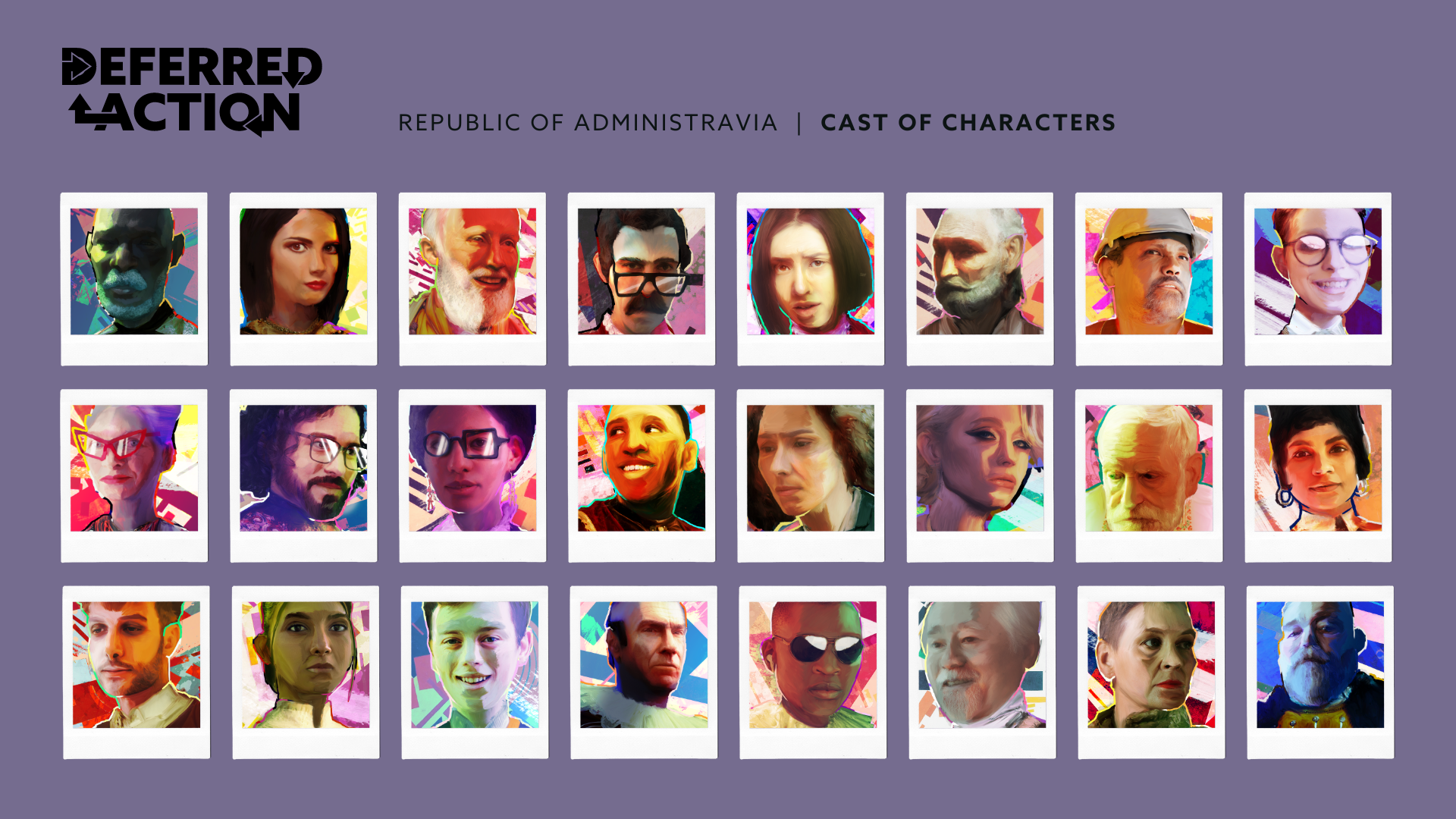
The characters that bar your way in Administravia – each with their own myopic interests and petty quibbles – are not supernatural enemies, nor even bad actors: they are us.
We comprise the 'system' that imprisons us, a collaborative labyrinth of our individual interests.
And perhaps the best way out of the maddening game we’ve created, is to critically, creatively and even joyously play it through.
"Elaborate and ingeniously crafted mazes of red tape enriched by crackling dialogue and philosophical panache"
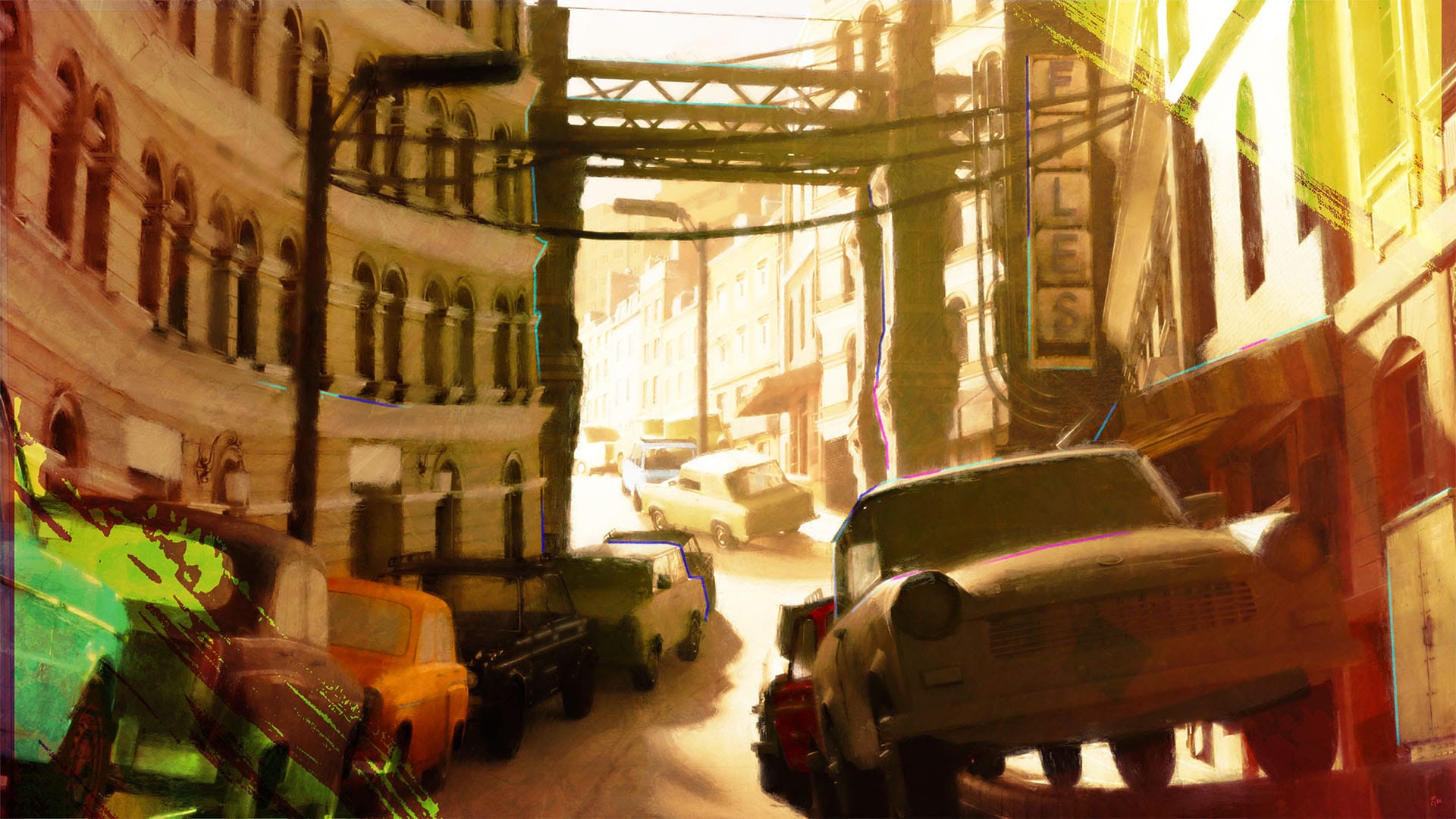
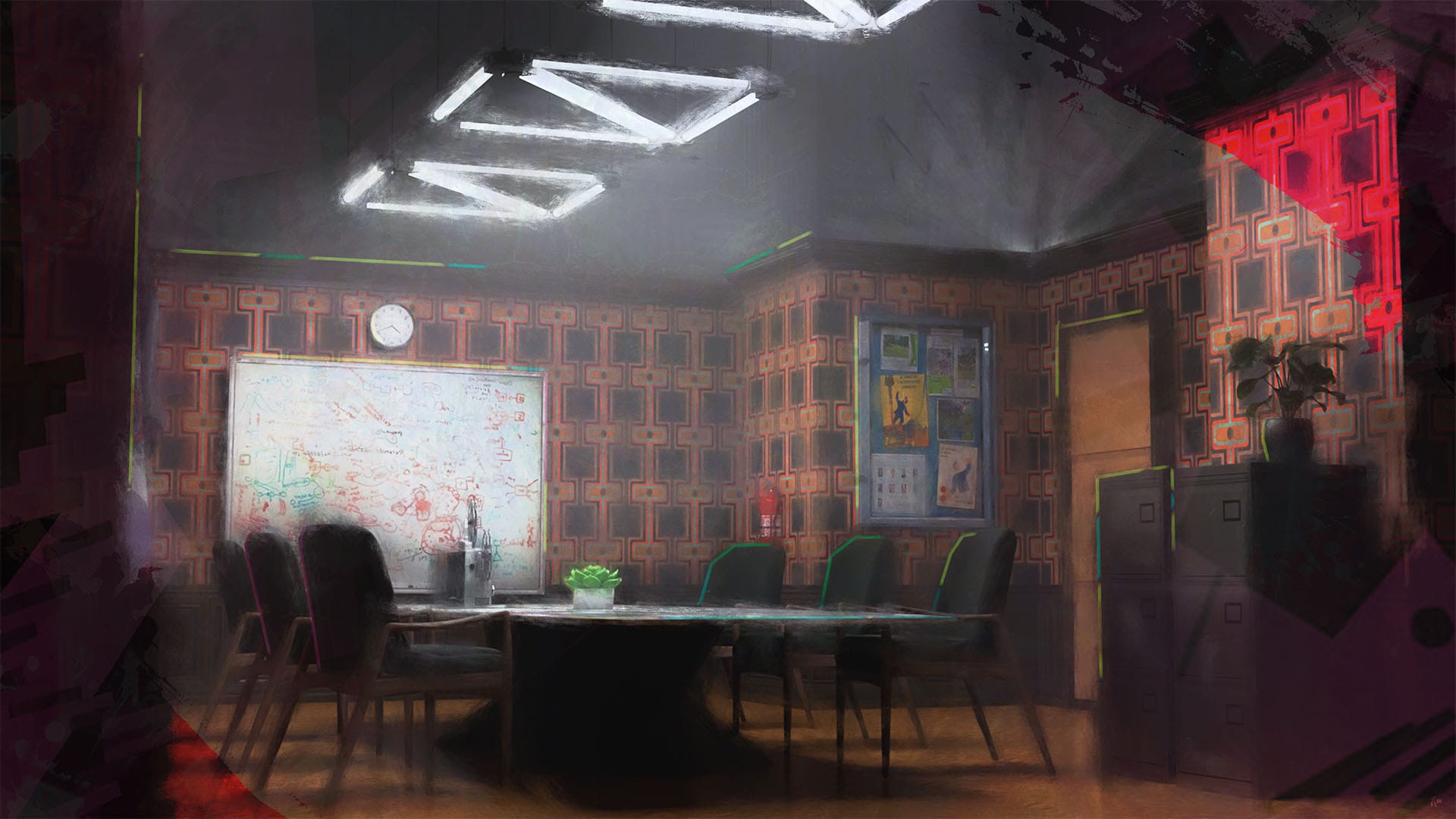
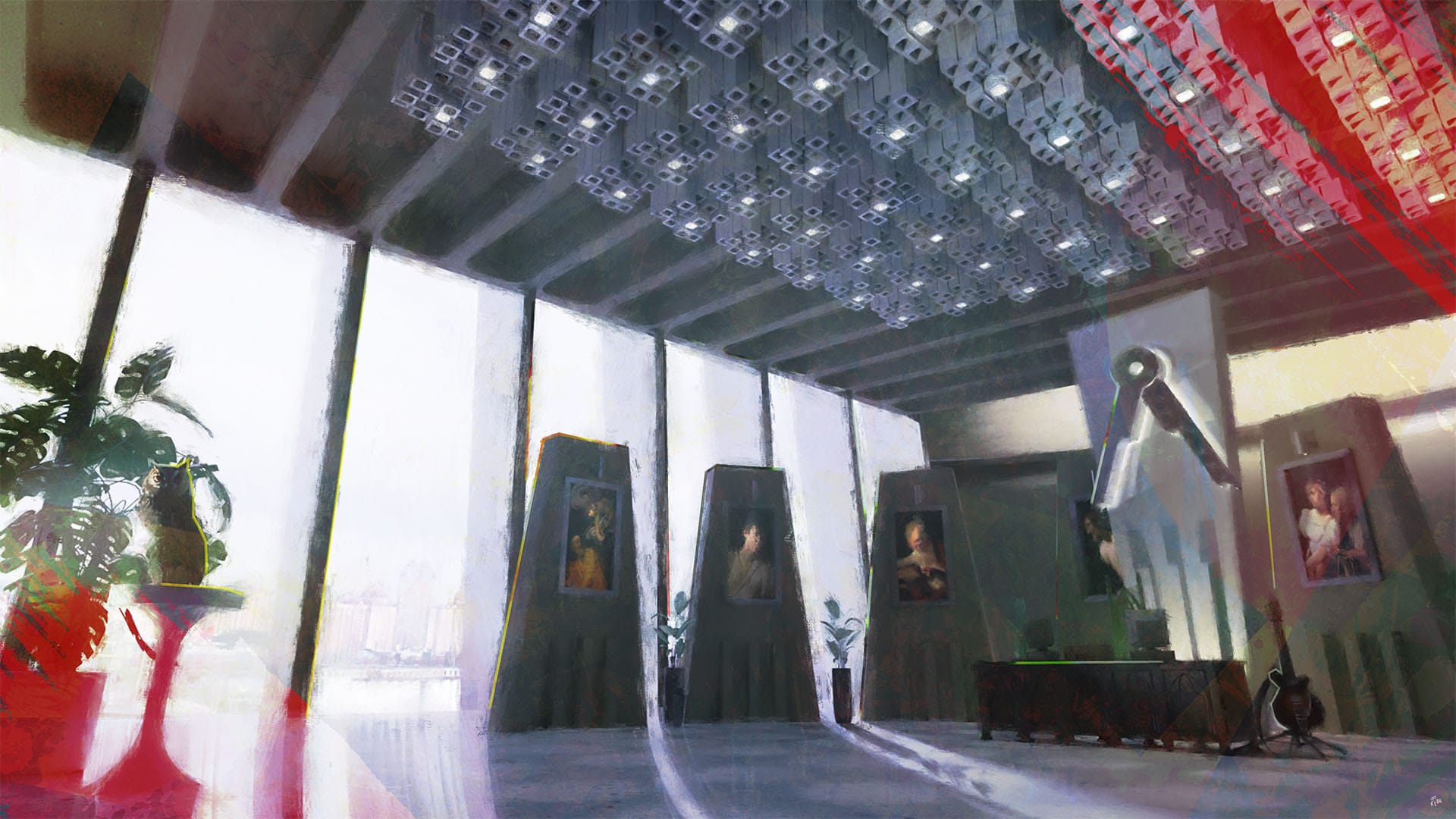


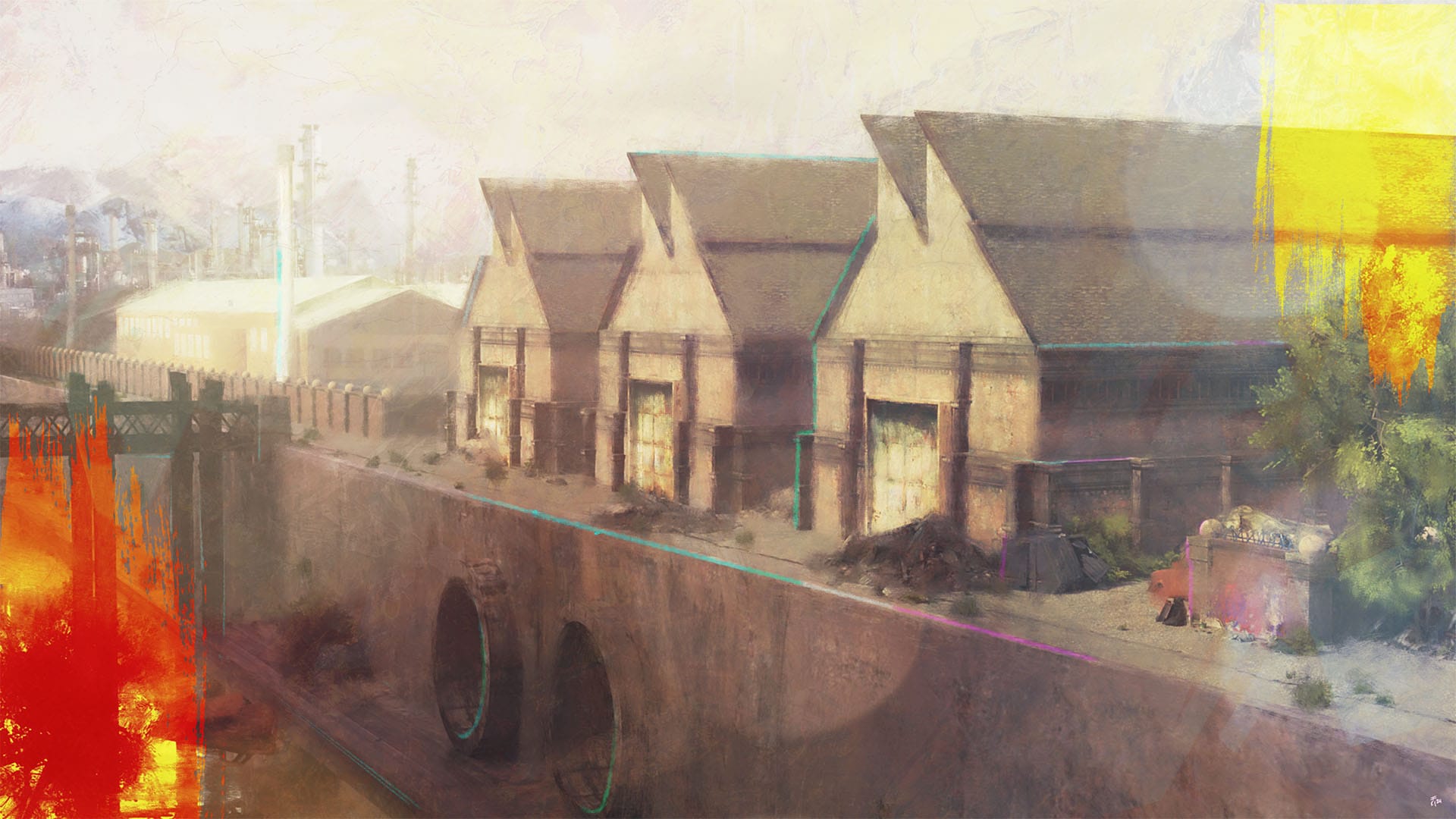
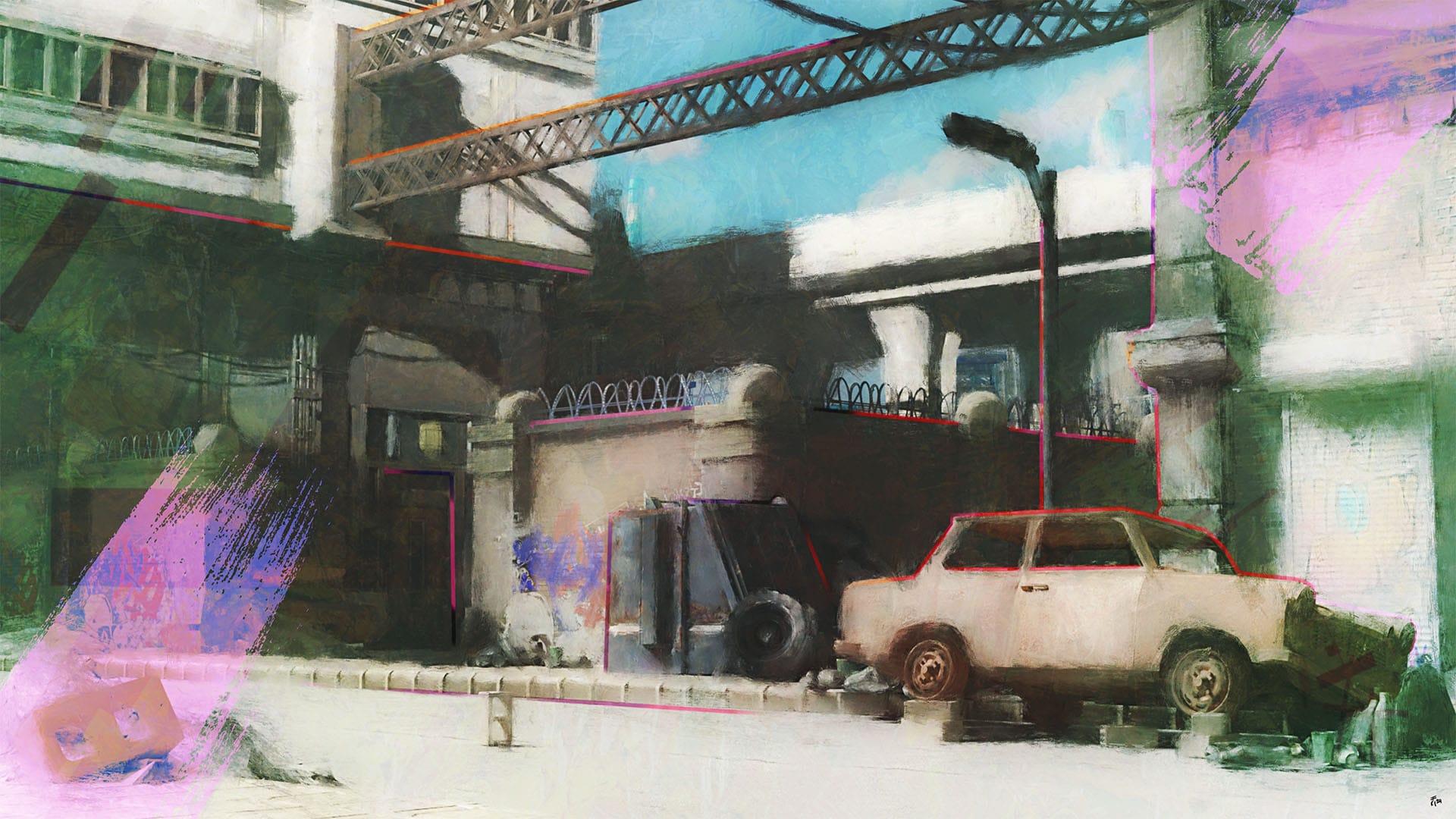

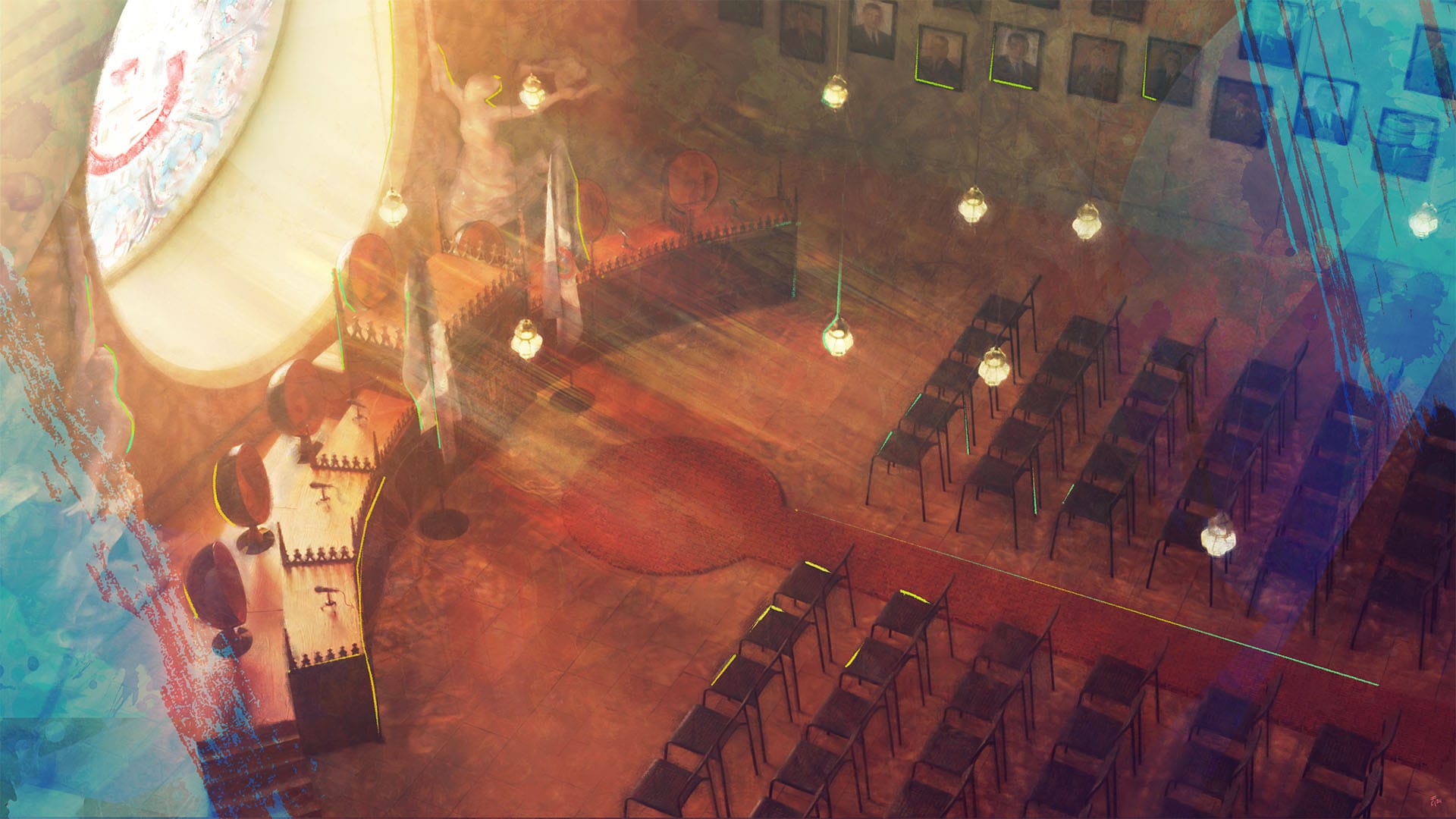
Some of the many exotic locations you'll visit across the Republic of Adminstravia
Which project will you take on?
Leave a lasting legacy on one of six different Administravian initiatives:
- an international airport that will bring new trade and tourism to the country
- an opera house to showcase the country's arts and culture
- a new parliament building to act a the symbolic heart of the republic
- a sports stadium to act as a new home for the national football team
- a nuclear power plant to provide power to the republic's growing cities
- a grand railway station that will make travel to and from the capital city quicker and easier

Game Credits
- Concept by Danu Poyner
- Game Design and Development by John Ayliff
- Artwork by Tom Morley
Earn a personalised certificate
On completing the game, have your achievements acknowledged and personally recognised by the Administravian Bureau of Certificates.
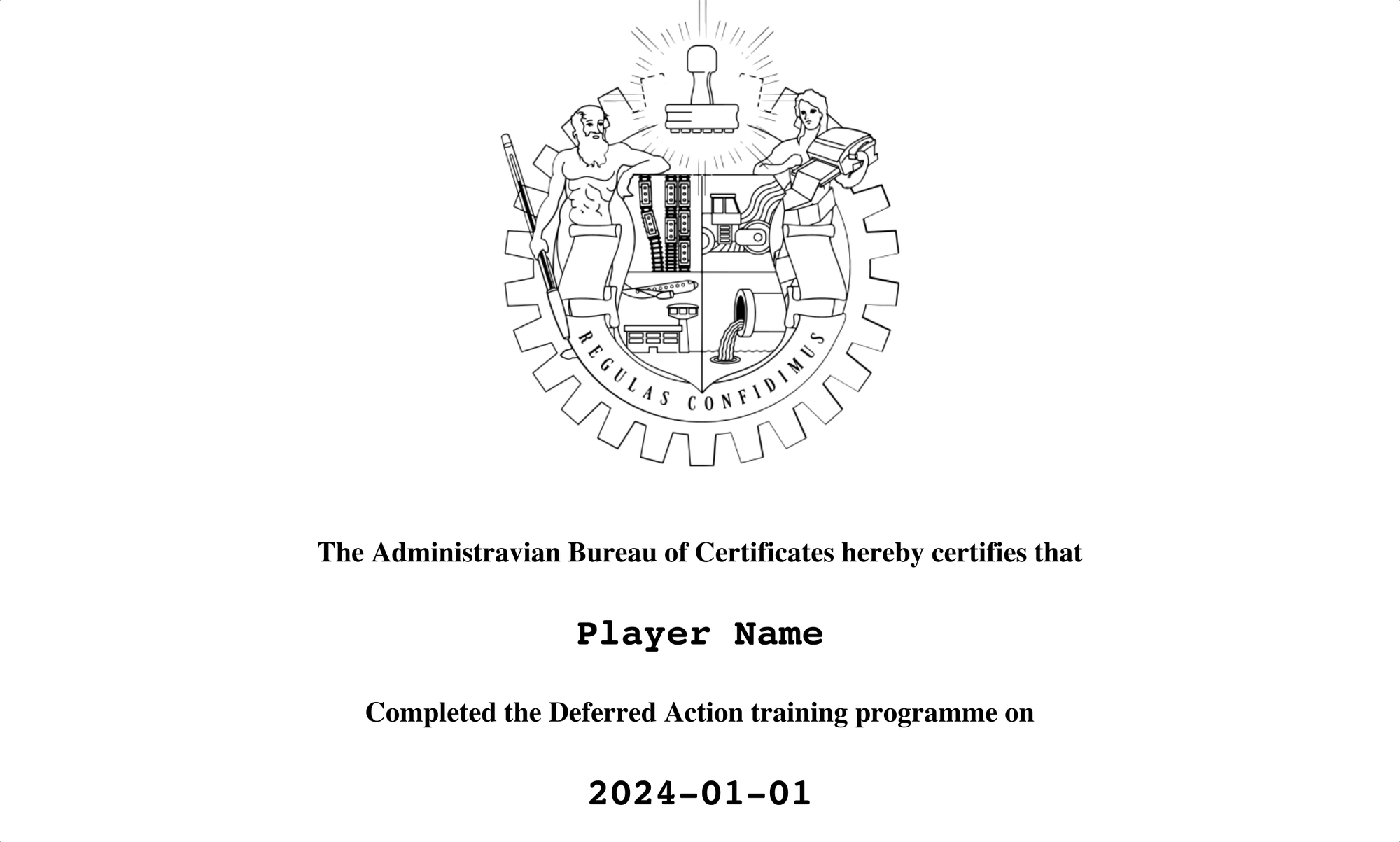
"I'm having a great time and I kinda want to kill myself"
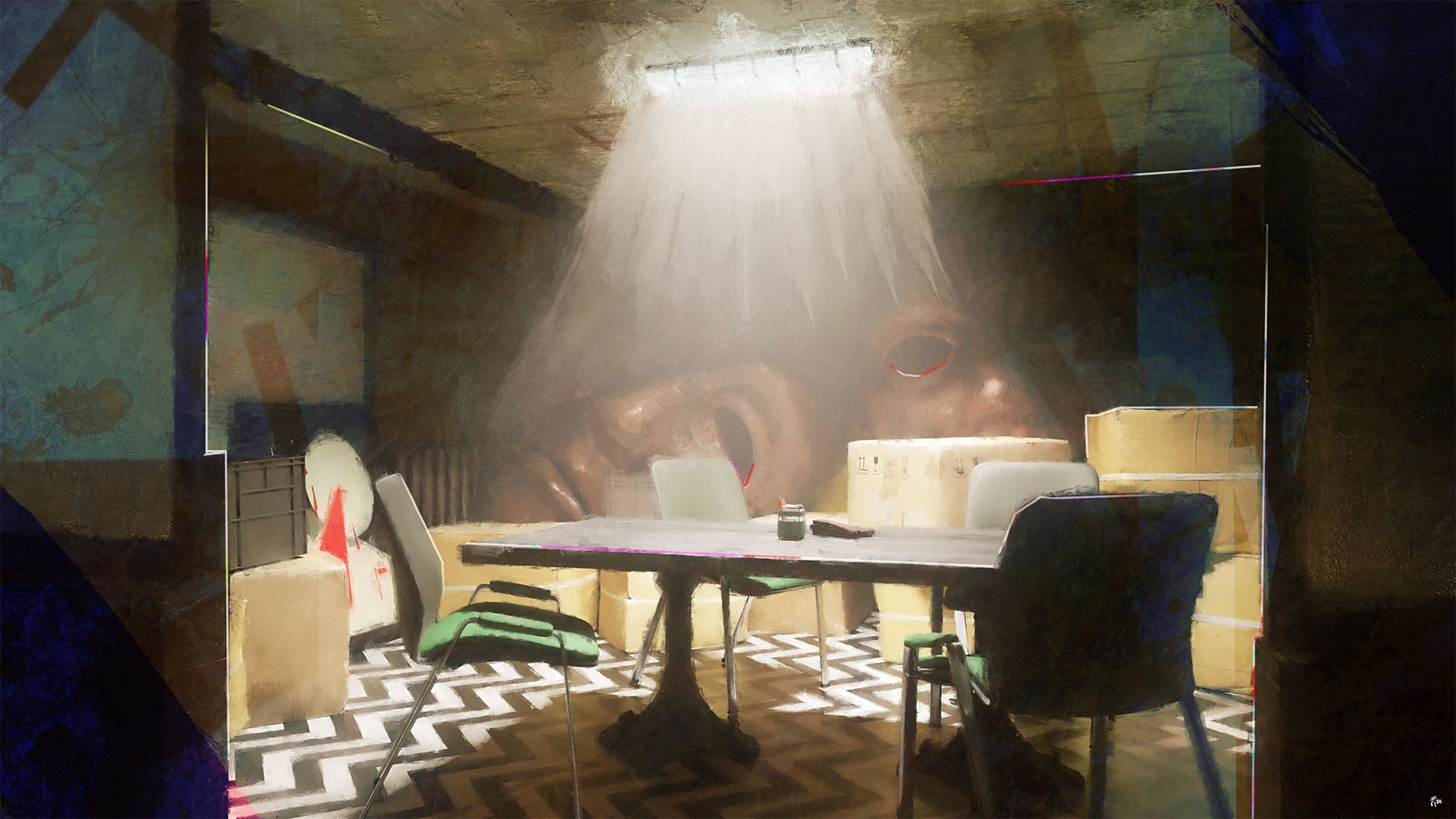
Making a 'persuasive game' about bureaucracy
Deferred Action is a game about navigating bureaucracy.
It’s designed to be frustratingly fun – the sort of experience you’ll be most excited to watch someone else go through.
In real life, if you ask people who spend their time navigating bureaucracy for a living, most will tell you that they maintain their sanity by turning it into a kind of game.
So just what kind of game is bureaucracy and how do you win? These are the core questions Deferred Action explores.
When people play Deferred Action for the first time, most of us naturally tend to play as ourselves. We start out by trying to create the project outcome we would ourselves most like to see, informed by our own values and preferences.
Without any encounters with the system that would tell us otherwise, our natural default is to care about the project itself and getting the best result for the republic. We feel ownership of the outcome, and so we carefully weigh all the information and pay close attention to the decisions and the detail because it all matters.
As we encounter resistance to our initial efforts, we quickly adapt our priorities to trying to satisfy the gatekeepers. This is no longer our project – it’s theirs. We start approaching decisions differently, less as something to engage with curiosity or care and more as an annoying puzzle to be solved.
By the end – if we are still there at the end – we no longer care about the project itself at all. There is no time for curiosity. We are simply clicking around in a frenzy, impatiently trying to get around and/or manipulate the people and obstacles that stand between us and the finish line.
In real life it can take a decade or more to have our souls fully hollowed out and flattened by systems and institutions in this way!
Deferred Action compresses this experience into a mere 2 hours - with jokes. It’ll just feel like you’ve been stuck playing it for a decade or more.
In real life it can take a decade or more to have our souls fully hollowed out and flattened by systems and institutions.
Deferred Action compresses this experience into a mere 2 hours - with jokes!
Does winning at bureaucracy mean finding the most efficient way to the finish line? Is it about becoming someone who is good at navigating its puzzles? Is the only way to win to refuse to play at all? What happens if we interrupt the game by calling bullshit whenever we encounter it?
Whatever answers you ultimately arrive at – in the game or in real life – we hope you will enjoy exploring the possibility space Deferred Action provides, and that you emerge from the experience a slightly different person than when you went in.

